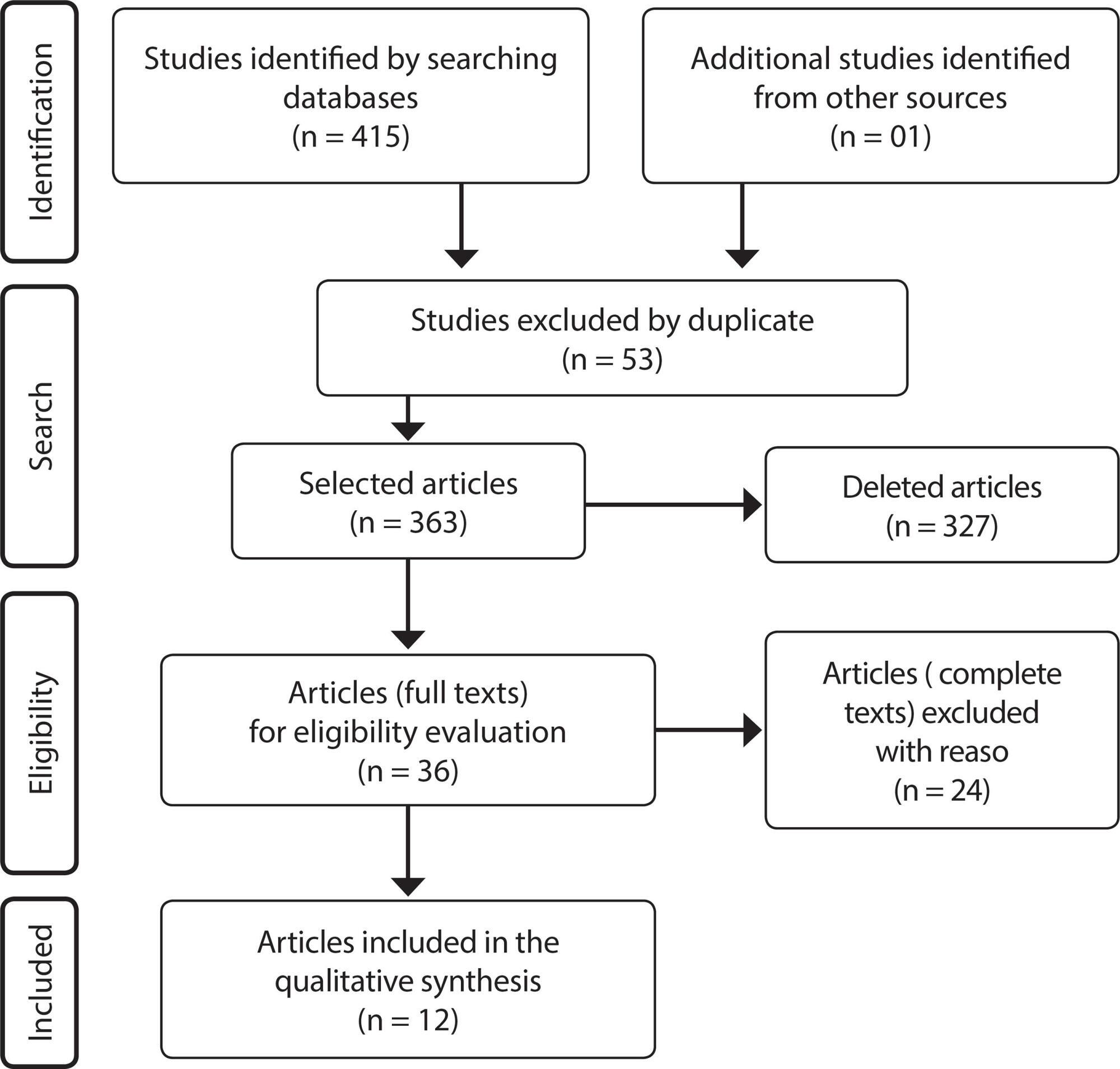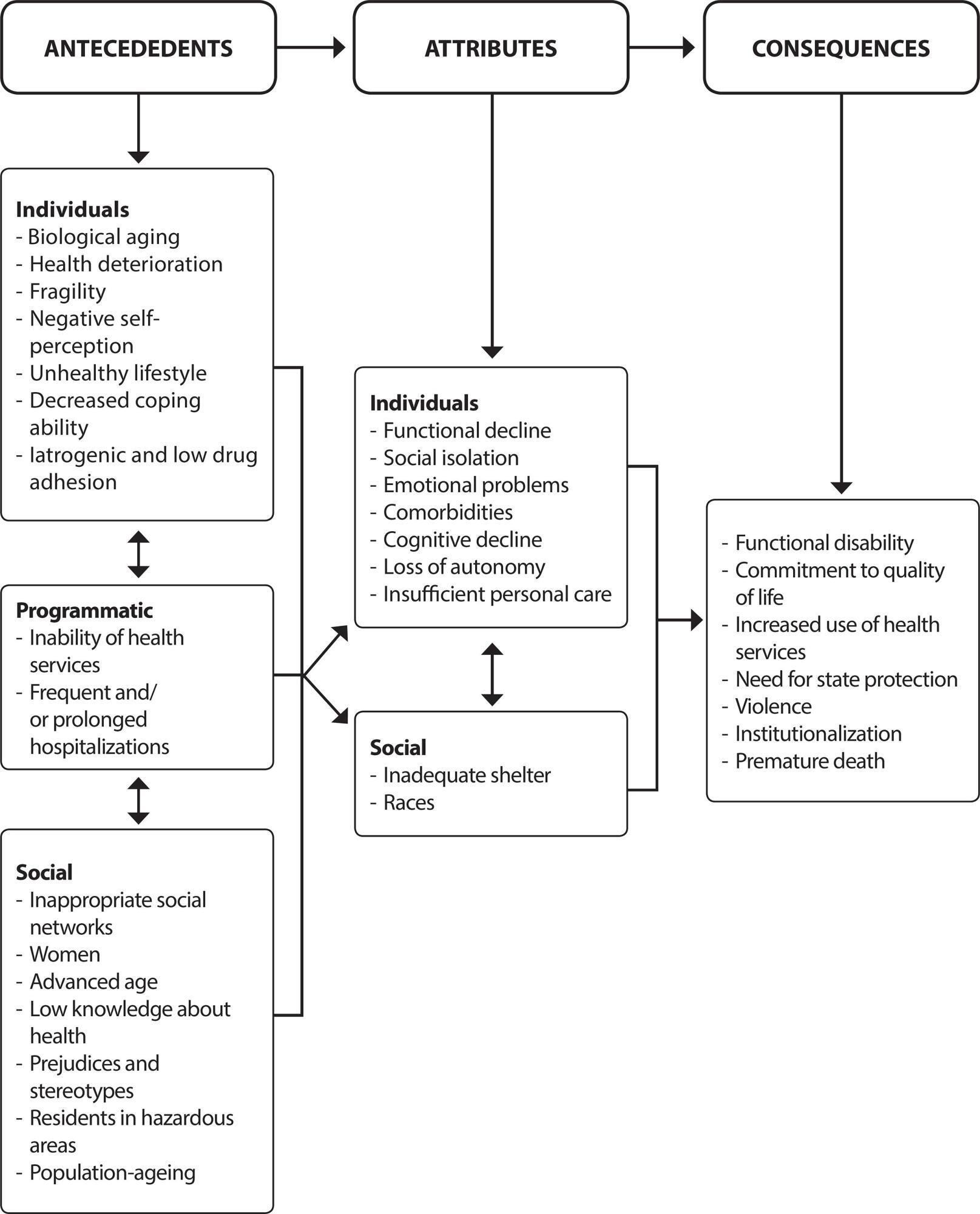-
REVISÃO
Assumptions of good practices in home care for the elderly: a systematic review
Revista Brasileira de Enfermagem. 2019;72(suppl 2):302-310
12-05-2019
Abstract
REVISÃOAssumptions of good practices in home care for the elderly: a systematic review
Revista Brasileira de Enfermagem. 2019;72(suppl 2):302-310
12-05-2019DOI 10.1590/0034-7167-2018-0445
Views0See moreABSTRACT
Objective:
To synthesize the knowledge produced on best nursing practices in long-term care for elderly at home, in order to promote healthy aging.
Method:
A systematic review, based on the Joanna Briggs Institute’s proposal: without restriction of dates; in the English, Portuguese and Spanish languages; conducted in PubMed, CINAHL, LILACS, Embase and Scopus databases.
Results:
Among 453 articles identified, 16 were included in the review: seven qualitative and nine quantitative, published between 1996 and 2015. The synthesis of the data identified as best practices identifies a premise of care centered on the elderly and the inclusion of the elderly, family and nurses as agents of this care.
Conclusion:
According to evidence, good practices in gerontological and nursing home care fundamentally depend on constant planning and reorganization, so that they are indeed comprehensive and contextualized. Thus, providing care will be reasoned by and driven to the elderly, based on their specific and global needs, favoring a process of healthy and active aging.
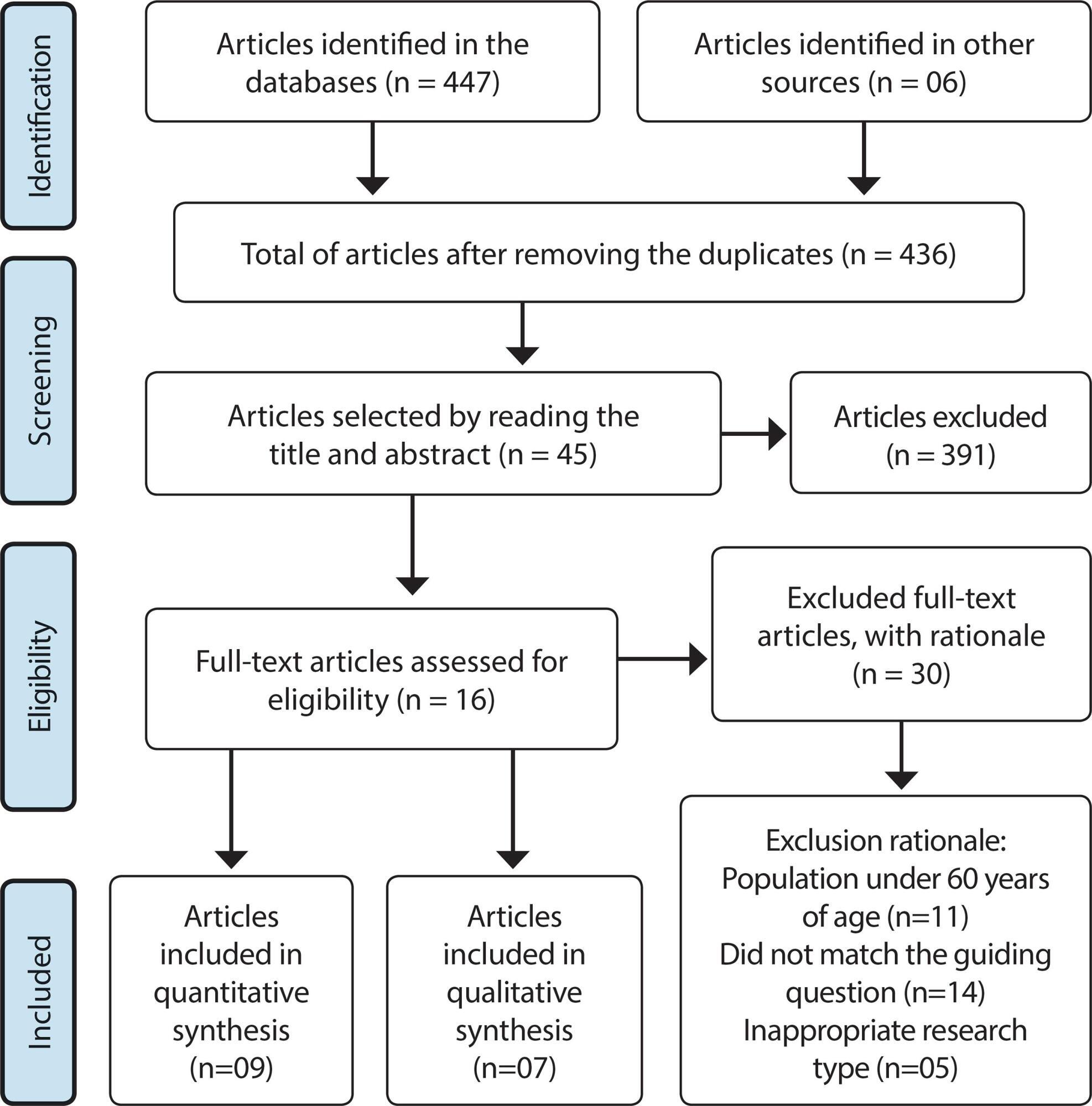
-
REVISÃO
Nurses’ competencies in health promotion for homebound older people
Revista Brasileira de Enfermagem. 2019;72(suppl 2):311-318
12-05-2019
Abstract
REVISÃONurses’ competencies in health promotion for homebound older people
Revista Brasileira de Enfermagem. 2019;72(suppl 2):311-318
12-05-2019DOI 10.1590/0034-7167-2018-0446
Views0See moreABSTRACT
Objective:
to identify competencies related to health promotion targeting homebound older people, as they appear in the literature.
Method:
systematic review using the LILACS, Scopus, CINAHL, PubMed and Cochrane Library databases. The search was performed in November 2017. Selected articles were analyzed according to nine competency domains: enable change; advocate for health; mediate through partnership; communication; leadership; assessment; planning; implementation, and evaluation and research.
Results:
nine clinical trials were included. All health promotion competency domains were identified in the reviewed research interventions, performed with homebound older people.
Conclusion:
studies showed that the employed treatments were beneficial for the homebound older population. Interventions based on health promotion competencies were positively identified, and are linked to an effective and high-quality health care practice.
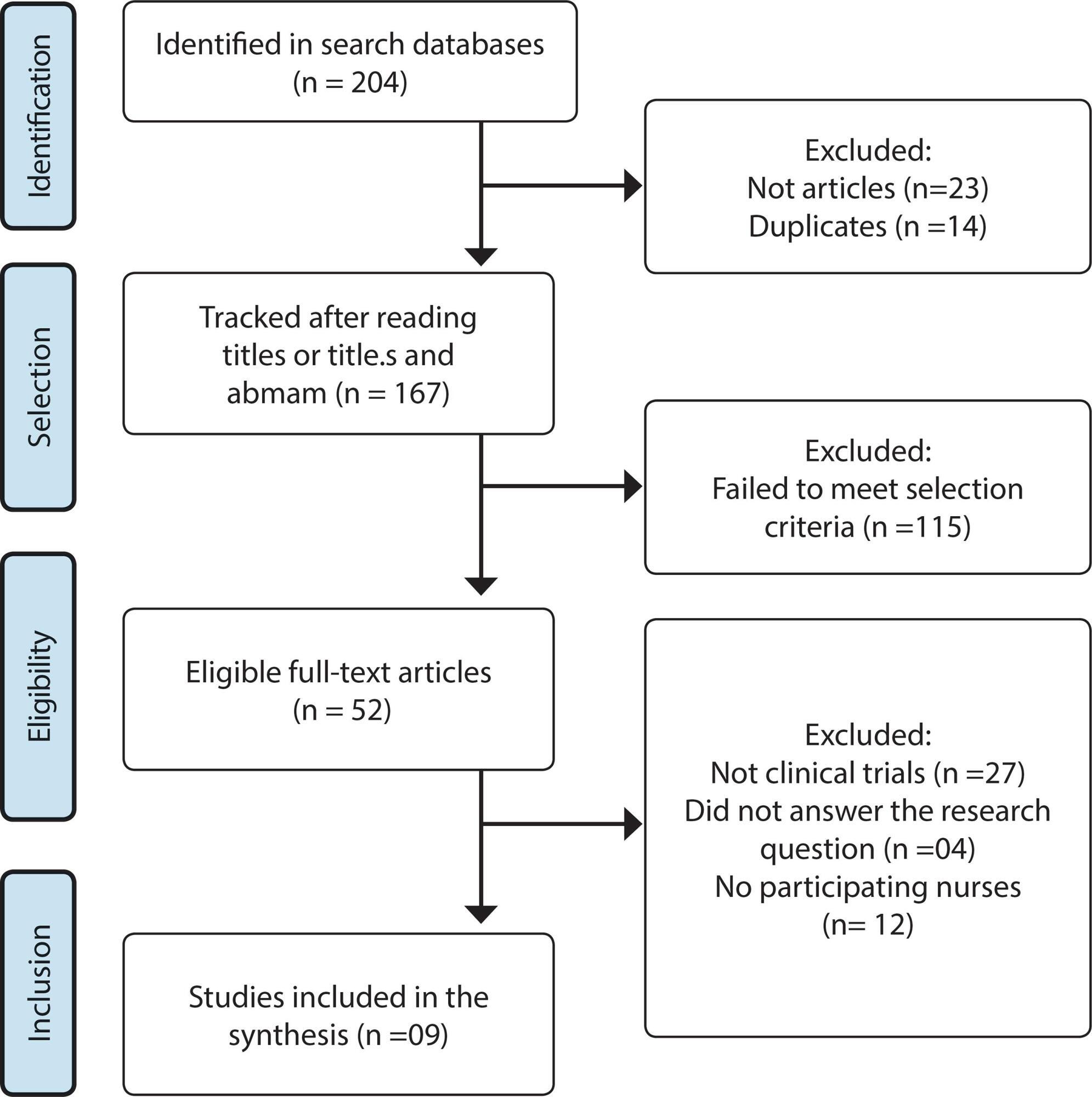
-
REVISÃO
Health promotion of frail elderly individuals and at risk of frailty
Revista Brasileira de Enfermagem. 2019;72(suppl 2):319-327
12-05-2019
Abstract
REVISÃOHealth promotion of frail elderly individuals and at risk of frailty
Revista Brasileira de Enfermagem. 2019;72(suppl 2):319-327
12-05-2019DOI 10.1590/0034-7167-2018-0575
Views0See moreABSTRACT
Objective:
To identify interventions for the health promotion of frail elderly individuals and those at risk of frailty.
Method:
Integrative review of the literature performed in the following databases: LILACS, CINAHL, MEDLINE, Web of Science, COCHRANE and Scopus, using the
Descriptors:
“frail elderly”, “aging”, “health services for the aged” and “health promotion” combined with Boolean operators “AND” and “OR”.
Results:
Randomized controlled clinical trials (RCTs) classified as level of evidence II represented 82.6% of studies. Interventions were analyzed according to the following categories: Interventions for the elderly at risk of frailty and Interventions for the frail elderly.
Conclusion:
The following interventions were identified: educational multiprofessional group meetings, physical training, home visit/home care program, nutrition assessment and supplementation, health maintenance programs and cognitive training; models/programs of management and monitoring, use of assistive technology devices and hospitalization program for geriatric rehabilitation.

-
REVISÃO
Financial-patrimonial elder abuse: an integrative review
Revista Brasileira de Enfermagem. 2019;72(suppl 2):328-336
12-05-2019
Abstract
REVISÃOFinancial-patrimonial elder abuse: an integrative review
Revista Brasileira de Enfermagem. 2019;72(suppl 2):328-336
12-05-2019DOI 10.1590/0034-7167-2018-0703
Views0See moreABSTRACT
Objective:
to analyze the available evidence in the nursing literature about financial-patrimonial elder abuse.
Method:
integrative review of articles indexed in the databases CINAHL, Scopus, Web of Science, LILACS and MEDLINE, from 2007 to 2017. The combination of controlled and uncontrolled descriptors was used in Portuguese, English and Spanish.
Results:
15 studies developed in seven countries were included. In the thematic analysis, three categories emerged: epidemiological data, risk factors and institutions providing services to the elderly. The occurrence of this type of violence concomitantly to the other subtypes was highlighted among the most frequent.
Final considerations:
the literature points to important epidemiological data, risk factors and characteristics of this type of violence, including within institutions providing services to the elderly, in different countries, essential aspects for structuring and rethinking public policies for protection and appreciation of the elderly.
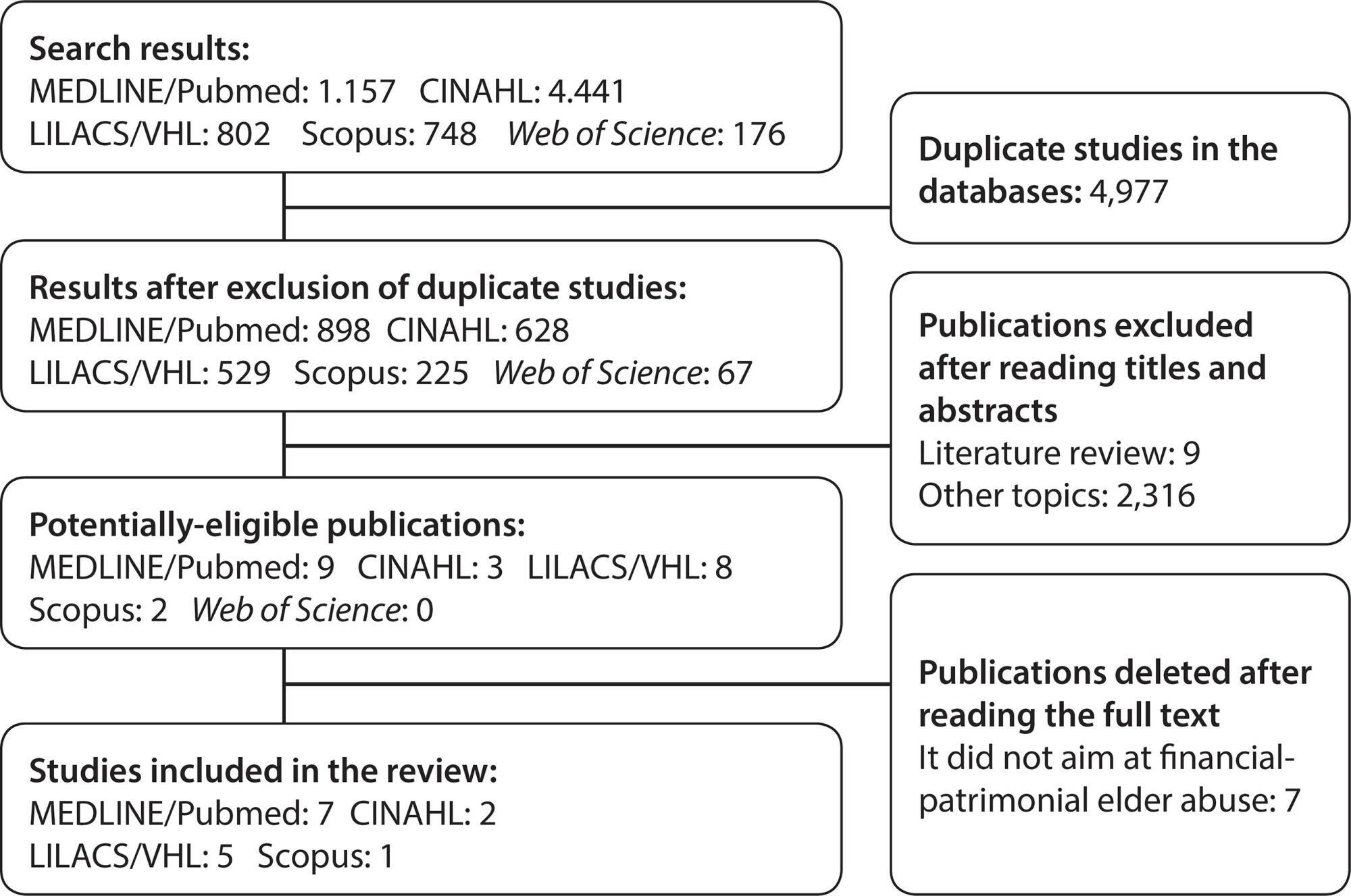
-
REVISÃO
Drug-Related Problems in the transitional care of the elderly from hospital to home
Revista Brasileira de Enfermagem. 2019;72(suppl 2):345-353
12-05-2019
Abstract
REVISÃODrug-Related Problems in the transitional care of the elderly from hospital to home
Revista Brasileira de Enfermagem. 2019;72(suppl 2):345-353
12-05-2019DOI 10.1590/0034-7167-2018-0848
Views0ABSTRACT
Objective:
To identify the knowledge produced on Medication-Related Problems in the transitional care of the elderly from hospital to home.
Method:
Integrative review of the literature data, organized in six stages: guiding question; establishment of inclusion and exclusion criteria; extraction of data; analyze; interpretation of results; and presentation of the review. Articles were considered among 2002 and 2017, in Portuguese, English, and Spanish, in the databases LILACS, MEDLINE, CINAHL and EMBASE.
Results:
10 studies were selected and analyzed. They were categorized by subject and identified in three themes: Medication Discrepancy and Reconciliation (40%); Adhesion to Medication (30%); and Adverse Drug Events (30%).
Final considerations:
Drug-Related Problems in the transitional care of the elderly from hospital to home, were presented as a relevant theme for nursing, involving complex issues related to care. Drug reconciliation was evidenced as a coherent and effective strategy in home care transitions for the elderly.
Keywords:Health of the ElderlyMedication Therapy ManagementNursing CarePatient Care PlanningTransitional CareSee more
-
REVISÃO
Standardization, ethics and biometric indicators in scientific publication: integrative review
Revista Brasileira de Enfermagem. 2019;72(6):1723-1729
10-21-2019
Abstract
REVISÃOStandardization, ethics and biometric indicators in scientific publication: integrative review
Revista Brasileira de Enfermagem. 2019;72(6):1723-1729
10-21-2019DOI 10.1590/0034-7167-2018-0283
Views0See moreABSTRACT
Objective:
to analyze scientific evidence available in health literature on ethics, standardization and biometric indicators.
Method:
an integrative review carried out in August 2016, on the databases: National Library of Medicine, Literatura Latino-Americana e do Caribe em Ciências da Saúde (Latin-American and Caribbean Literature on Health Sciences), and on the library Scientific Electronic Library Online. The review included primary articles on: ethics, standardization and biometric indicators, in Portuguese, English, or Spanish; and excluded studies that were not found as full texts, as well as opinions, commentary, reviews, theses, and dissertations. For the evaluation of the articles, it was used evidence levels from one to five.
Results:
eight articles were included, with scientific evidence levels 4 and 5: scientific productivism, production evaluation systems, internationalization, impact factor, classification of journals, and adequate and inadequate practices for publication.
Conclusion:
it was verified the need for publications with higher evidence levels so that Brazilian journals can follow international standards dealing with research ethics.
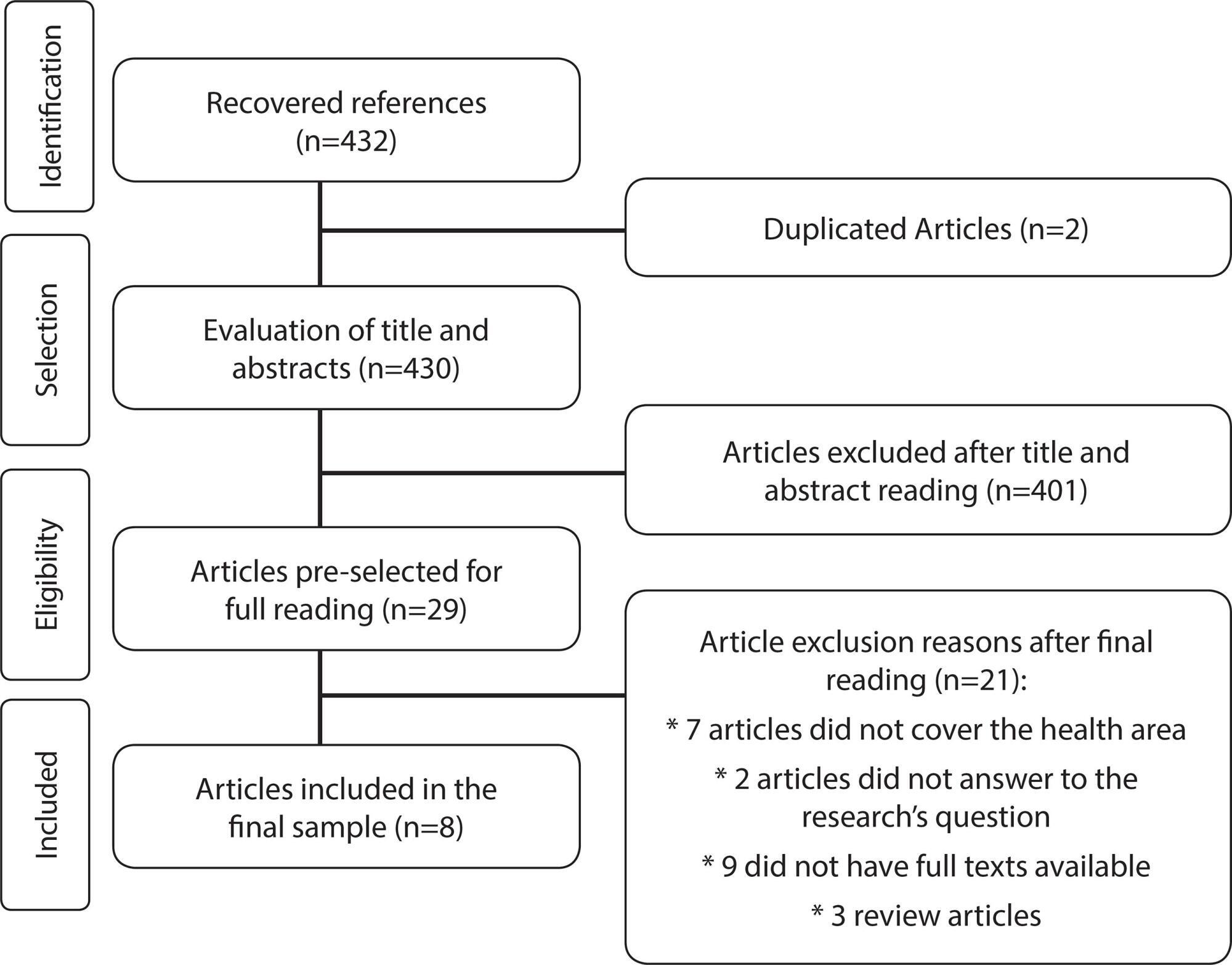
-
REVISÃO
Instruments for quality of life assessment in individuals with human papillomavirus
Revista Brasileira de Enfermagem. 2019;72(5):1363-1369
09-16-2019
Abstract
REVISÃOInstruments for quality of life assessment in individuals with human papillomavirus
Revista Brasileira de Enfermagem. 2019;72(5):1363-1369
09-16-2019DOI 10.1590/0034-7167-2017-0394
Views0See moreABSTRACT
Objective:
To identify scientific evidence on quality of life measurement instruments used in individuals with infections caused by human papillomavirus.
Method:
This was an integrative review carried out from April 1995 to March 2017 in the LILACS, SciVerse Scopus, ISI Web of Science, CINAHL, and PubMed databases. The controlled descriptors adopted were: Infecções por Papilomavirus; Qualidade de Vida; Papillomavirus Infections; and Quality of Life.
Results:
Of the 416 articles found, 12 were selected. Thirteen different types of instruments to evaluate the quality of life of individuals with human papillomavirus were identified, in that nine were generic and four specific.
Conclusion:
Different generic and specific instruments were used to evaluate the quality of life of individuals with human papillomavirus, which means no consensus or preference among the studies was identified. However, a lack of use of specific instruments to evaluate this construct in this population was observed.
